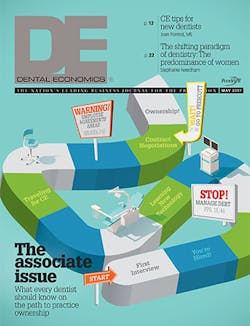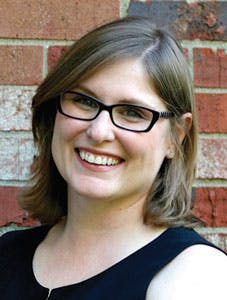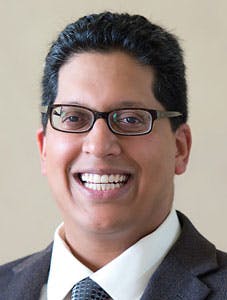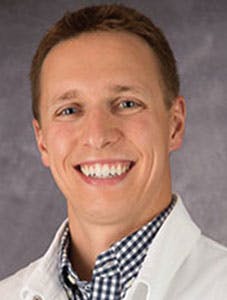CE tips for new dentists
Questions from recent dental school graduates and answers from Dawson Academy faculty
As a new dentist, there is no doubt that your life after dental school graduation is stressful. Beyond having to find a job, there are new skills to master and difficult decisions to make—without any clear guidance. You may be asking questions like: How do I get faster doing all these procedures? Where do I go for continuing education (CE)? What equipment and products do I really need to purchase?
The following are questions collected from recent dental school graduates and answers from Dawson Academy faculty (and students) Shannon Johnson, DDS, Pio Modi, DDS, Rajeev Upadya, DMD, and Matthew Wolfe, DMD.
What was your biggest challenge out of school and how did you address it?
Dr. Johnson: While still in dental school, I encountered a patient who challenged everything I had learned. He was an elderly, edentulous patient who desired a set of dentures. Capturing a repeatable bite registration on this gentleman eluded me and my covering faculty. No less than five faculty members worked with me on his case, each having a different technique to capture the centric relation bite record. In the end, not one of those techniques worked. It is no exaggeration that I saw this patient for nearly 20 appointments (each of which were three to four hours). When I got out of school, I knew there had to be a more predictable, less stressful way to do dentistry.
Dr. Modi: My biggest challenge was not having an understanding of global treatment planning and the masticatory system. After graduating, I really was only minimally proficient with “tooth” dentistry. At least 90% or more of what makes me a dentist today is the CE that I have taken outside of dental school.
Dr. Upadya: I had two big challenges. One was learning how to do things efficiently so that I was able to finish procedures in a reasonable amount of time. I found that once I had seen a handful of patients over the first six months to a year after finishing residency, I started naturally picking up my speed and realizing how quickly I could go while still being efficient.
The other challenge was trying to figure out how to treatment plan patients with multiple issues. The treatment planning part—that didn’t come so easily because, if anything, in residency, people are very often trying to tell you how to take shortcuts, not necessarily how to do things the correct way. As we all know, shortcuts are sometimes the longest distance between two places. It made me start looking at continuing education, speaking to mentors in the field, and looking for coursework and other ways to learn how to do comprehensive treatment planning.
Dr. Wolfe: My biggest challenge out of school was learning how to handle complex, comprehensive cases. And by this I mean cases that involved a combination of problems (for example: multiple restorations, orthodontic issues, and periodontal issues). In school, we were used to diagnosing a cavity and fixing it. I wasn’t comfortable seeing a case from a global perspective.
Looking back, what’s the best order to learn various CE topics? For example, occlusion, leadership, implants, and restorative?
Dr. Johnson: I am so very thankful for mentors guiding me to an incredible Advanced Education in General Dentistry program that emphasized occlusion along with advanced restorative techniques. It provided a rock-solid foundation and jumpstarted my career. Beyond that solid foundation, the best order really depends on the individual. Elevate your weakness and maximize your strengths. Seek courses that excite you to do dentistry. Seek courses that will have a direct impact on your bottom line by helping you do a particular procedure better. Seek courses that help you grow into the best version of yourself. Leadership skills are an absolute necessity. Whether you own your practice or are an associate, work for a corporate group or work in a public health clinic, practice in the military or teach in academia—your role as a dentist is a leadership role. Start early and think of leadership skills as the salt and pepper needed to season your clinical skills to perfection.
Dr. Modi: Because there is so much to learn beyond what was taught in dental school about restorative dentistry, I would say restorative first. The bulk of procedures that a general dentist will perform are traditional “fillings,” and given that we as a profession are moving beyond amalgam restorations, learning how to do excellent resin restorations is a must. Then, once you have developed your restorative skills, the next step would be a better understanding of occlusion. This topic is crucial for global treatment planning and in order to properly achieve long-term functional and restorative stability for your patients.
Dr. Upadya: So from a very basic standpoint, I think that every dentist coming out of school needs to have an understanding of simple restorative dentistry. If they don’t know the basic techniques, or did not get comfortable in school or residency with doing simple things like proper fillings, composites, crowns, and things like that, I think that’s number one. But number two is treatment planning and comprehensive exams because everything else you do is honestly a treatment that you create for a patient, and unless you’ve come up with a proper diagnosis and a plan, you should not do a treatment.
Dr. Wolfe: I feel the best order for me would start with occlusion, mainly because I felt that my dental school education significantly lacked in this topic. Now that I’ve been educated in occlusion, I realize how important it is in any treatment we provide to our patients. It should definitely be considered the foundation of any practice. Second would be leadership. I feel the most stress in my practice comes from being a boss and leader to my team. Third would be restorative (including removable prosthodontics), and last would be implants. I put implants last because a complete understanding of occlusion and restorative dentistry is necessary before offering implants as a treatment option to your patients.
What skill do you have now that you wish you had then, and how did you get it?
Dr. Johnson: I am delighted to have gained the ability to restore a mouth to optimum health, both in function and beauty. Obtaining and transferring an accurate centric relation bite record is the most crucial step to accurate treatment planning. The Dawson Academy taught me how to do it. Its 2-D and 3-D checklists allow me to blend both predictably.
Dr. Modi: I wish I had known about the importance of centric relation being the starting point for occlusal therapy when signs of instability exist. My knowledge of centric relation is all from the great teachings of Dr. Dawson and his lead faculty at the Dawson Academy.
Dr. Upadya: Looking back, the best skill I’ve developed is my ability to see problems and figure out what’s going to happen to somebody down the line if they don’t correct them. For example, early in my career I would have liked to have recognized the occlusal breakdowns and stress on the teeth, joints, and muscles that pervade through our patient populations. Without question, the Dawson Academy’s complete examination and treatment planning philosophy is where I got that knowledge.
Dr. Wolfe: The skill I have now that I wish I had coming out of dental school was knowing how to handle complex treatment plans. Between treatment planning, sequencing treatment, working within patient parameters, and patient communication issues, there is so much that goes into handling complex cases. I have been able to, and continue to, greatly improve on these skills through my experiences with the Dawson Academy and the American Academy of Cosmetic Dentistry.
What is one tool you could not live without?
Dr. Johnson: My articulator and facebow—I need them to practice dentistry just as much as I need air and water to survive.
Dr. Modi: My Artex Articulator, with the T-Scan being a close second.
Dr. Upadya: I’d say, if I had to boil it down to one, it would probably be my camera. If I could boil it down to two, it would be my camera and my articulator.
Dr. Wolfe: Without a doubt, my articulator. I feel an articulator is an absolute must when diagnosing and treatment planning any sort of functional or esthetic problem.
What do you love most about dentistry?
Dr. Johnson: I love the positive impact we have on the well-being of our patients, inside and out. I love watching a patient who covers her mouth in embarrassment transform as she sees herself smile in the mirror again. I love watching the relief and sense of peace fall over a patient when pain and discomfort is erased. I love helping people be their best.
Dr. Modi: I love being able to provide solutions to dental and masticatory system problems. I truly feel that we can positively change lives through our dental care, whether it is a simple or complex restorative case. My favorite procedures are full-mouth rehabilitation (for patients with worn, broken, or missing teeth), cosmetic dentistry, and implant dentistry.
Dr. Upadya: This might sound a little cliché, but I love when the patients tell me how wonderful they feel. Whether it’s how I’ve changed them esthetically and they can finally smile, or if I took them out of pain with an equilibration, I just love that result that I get when a patient is happy with the treatments that we’ve done for them. The other thing associated with that, I love when the staff gets wowed every single time that we do this. The staff is like, “I didn’t even think that we were going to be able to achieve that result for the patient.” And it’s just a wonderful feeling when you get that sort of result or that sort of response from a patient.
Dr. Wolfe: The thing I love most about dentistry is the engineering and design involved when treatment planning cases. I absolutely love working with the patient to gather the data, coming up with a design that works for both the patient and me, testing that design in prototypes, and then delivering the product in definitive treatment. The process is completed by giving the patient a final product that they are extremely happy with.
About the interviewees
Shannon Johnson, DDS, practices in Elizabethtown, Kentucky, and is an associate faculty member at the Dawson Academy.
Pio Modi, DDS, maintains a private practice in Brantford, Ontario. He is the associate director of the Ambassador Program for the Dawson Academy and the study club leader for the Dawson Study Club in Toronto.
Rajeev Upadya, DMD, practices in Florham Park, New Jersey. He is a senior faculty member at the Dawson Academy US and Dawson Academy India. He is coleader of the North Jersey Dawson Study Club.
Matthew Wolfe, DDS, maintains a practice in Rochester Hills, Michigan, and is an associate faculty member at the Dawson Academy.
About the author
Joan Forrest, MS, is the president of the Dawson Academy. Prior to joining the academy, she founded and served as president of Prime Performance, a training and consulting company specializing in developing self-directed work teams and facilitative leadership.
RECOMMENDED
Finding optimum continuing education | By Gordon J. Christensen, DDS, MSD, PhD




